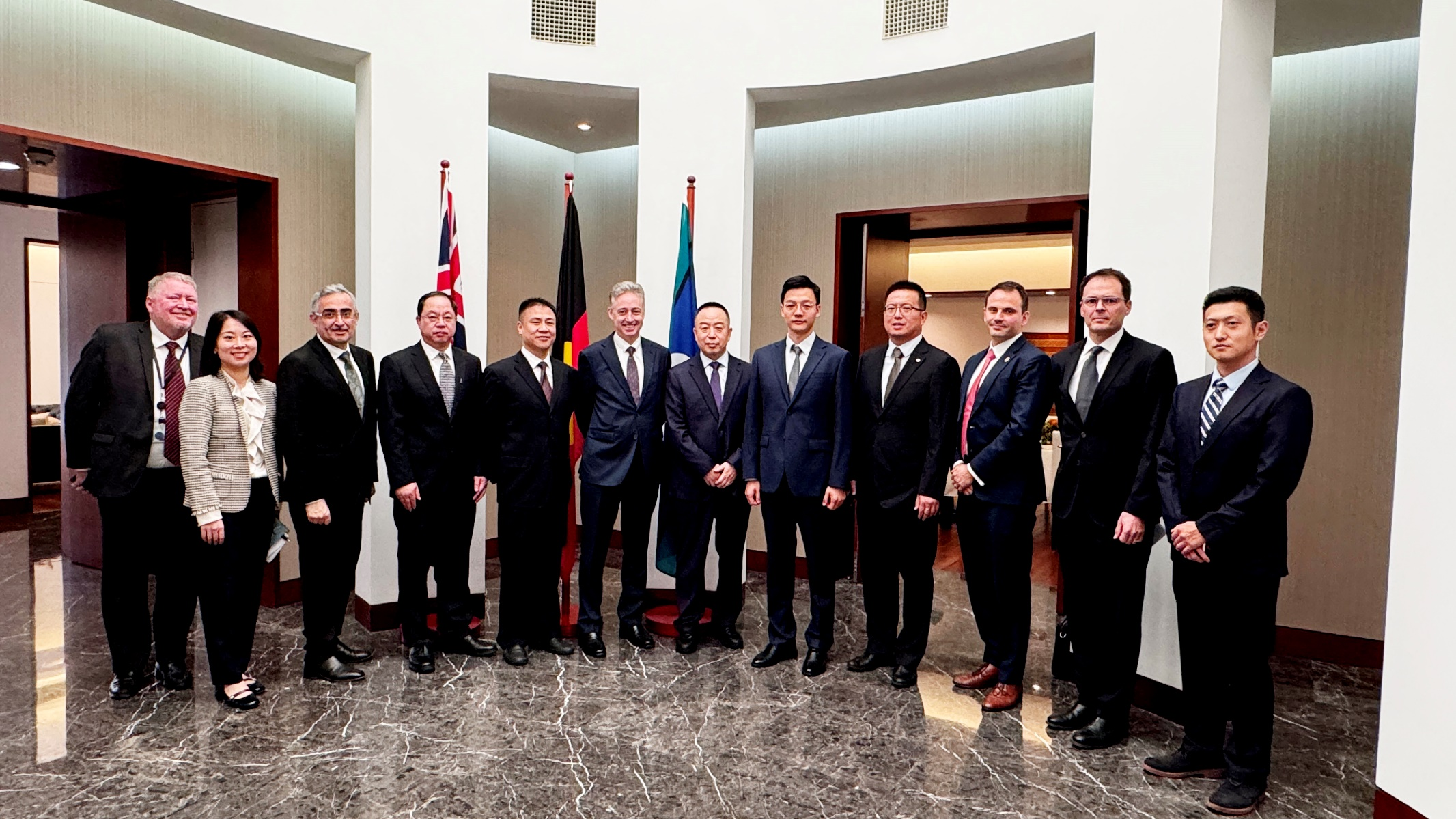On September 10, Zhang Ping, Chairman of the Board of Beijing Energy International, was invited by Mr. Scott Dewar, the Australian Ambassador to China, to attend a luncheon on the theme of net-zero emissions hosted by the Australian Embassy in China. The event was attended by Dominic Trindade, Minister-Counsellor for Commercial Affairs, Simon Farbenbloom, Minister-Counsellor for Economic Affairs, David Osborne, Minister-Counsellor for Treasury Affairs, Iannis Patin, Commercial Counsellor, and other embassy officials, as well as other representatives of Chinese enterprises.

At the luncheon, Mr. Scott Dewar welcomed the representatives of Chinese enterprises and delivered a speech. He noted that the economies of China and Australia are highly complementary, and bilateral relations have been further strengthened following mutual visits by the Prime Ministers of both countries. The current Australian government has made low-carbon emissions reduction a priority and set targets for the development of new energy. Moving forward, the government will continue to promote the implementation of relevant policies to create a more favorable environment for Chinese companies to invest in renewable energy in Australia.
During the event, Zhang Ping had an in-depth exchange with the ambassador. Mr. Scott Dewar praised the company for its active role in providing clean power supply and promoting local employment in Australia. He also expressed his intention to engage in closer communication with the company on matters such as FIRB (Foreign Investment Review Board) approval for investment projects in Australia.
Zhang Ping expressed his gratitude for the embassy’s invitation and introduced the company’s achievements in Australia and its development strategy for the next phase. He stated that the company will continue to strengthen communication and collaboration with Australia, explore diversified new energy project development models based on Australia’s local resource endowment, and contribute to achieving Australia’s carbon reduction goals by 2030.